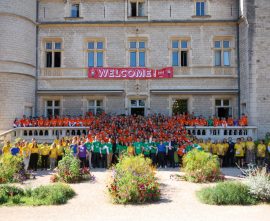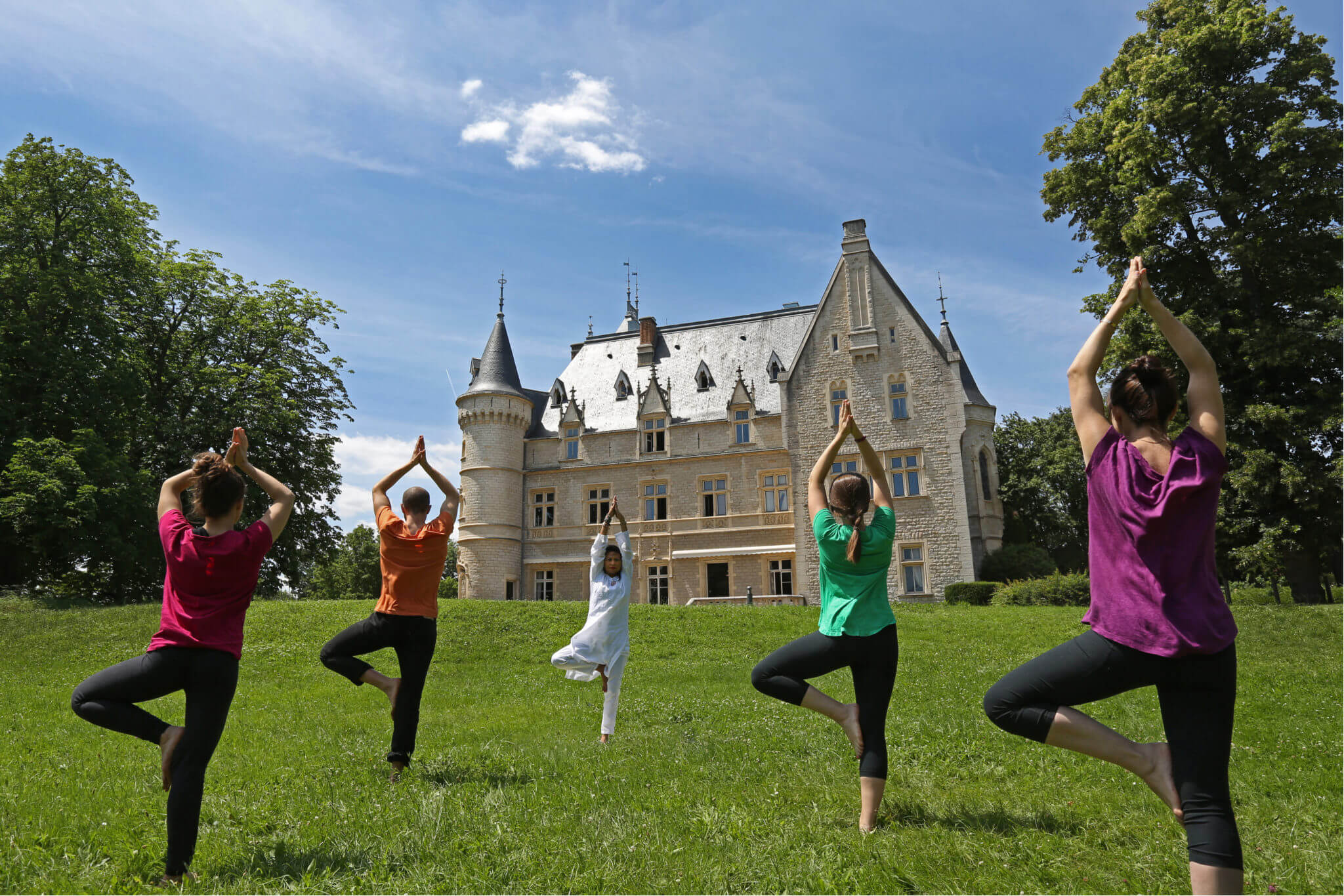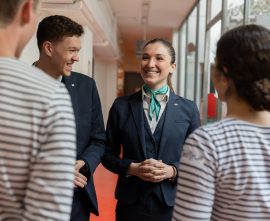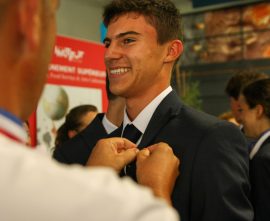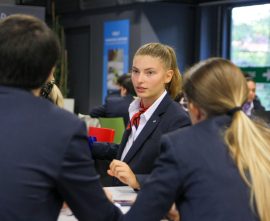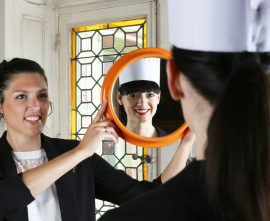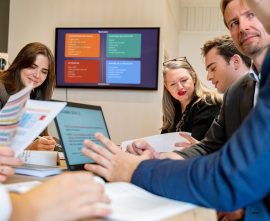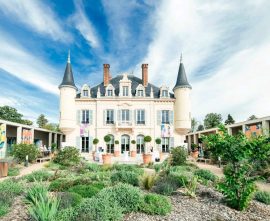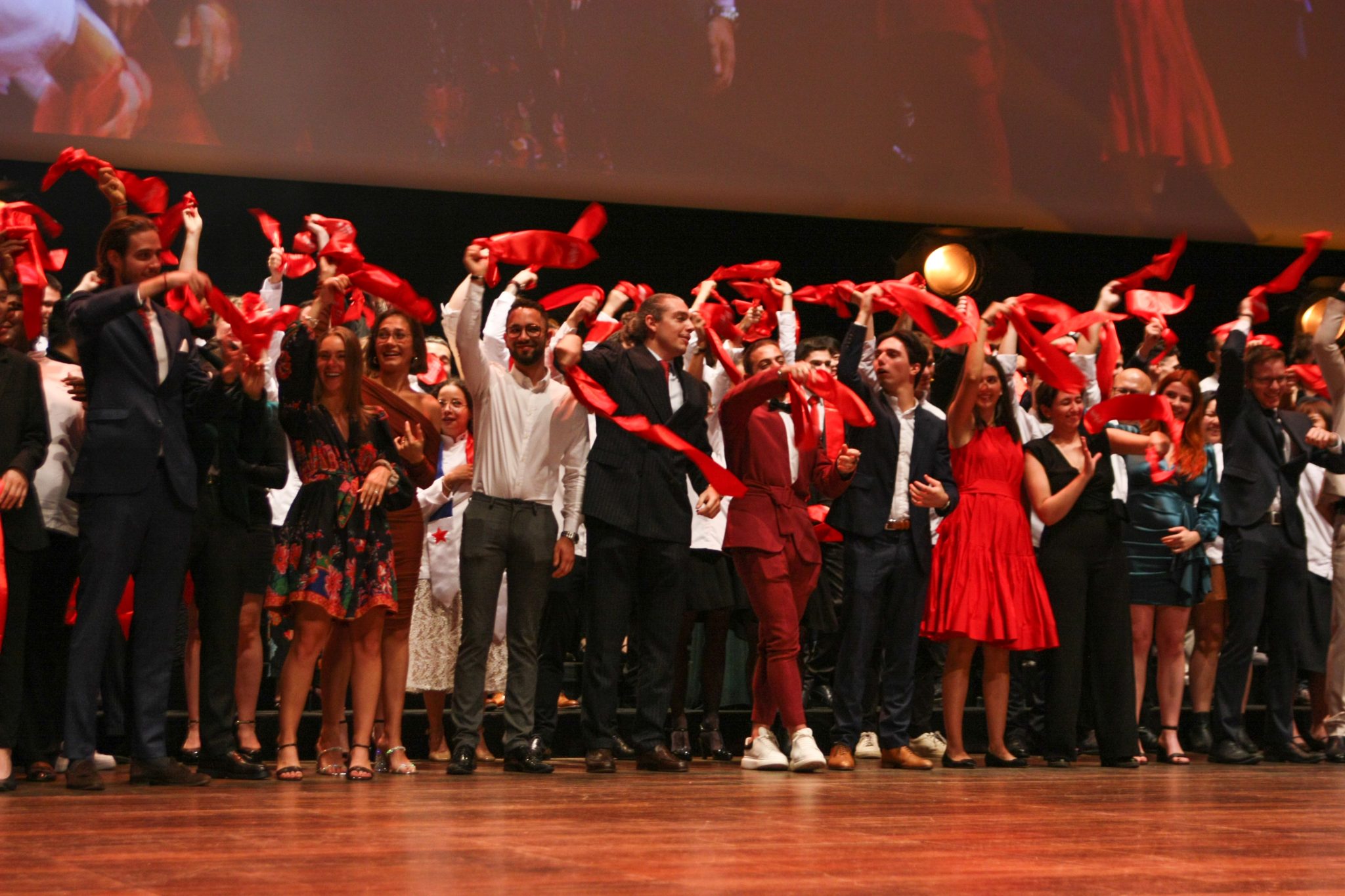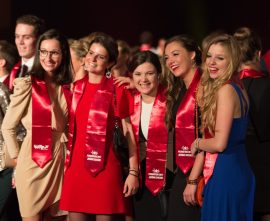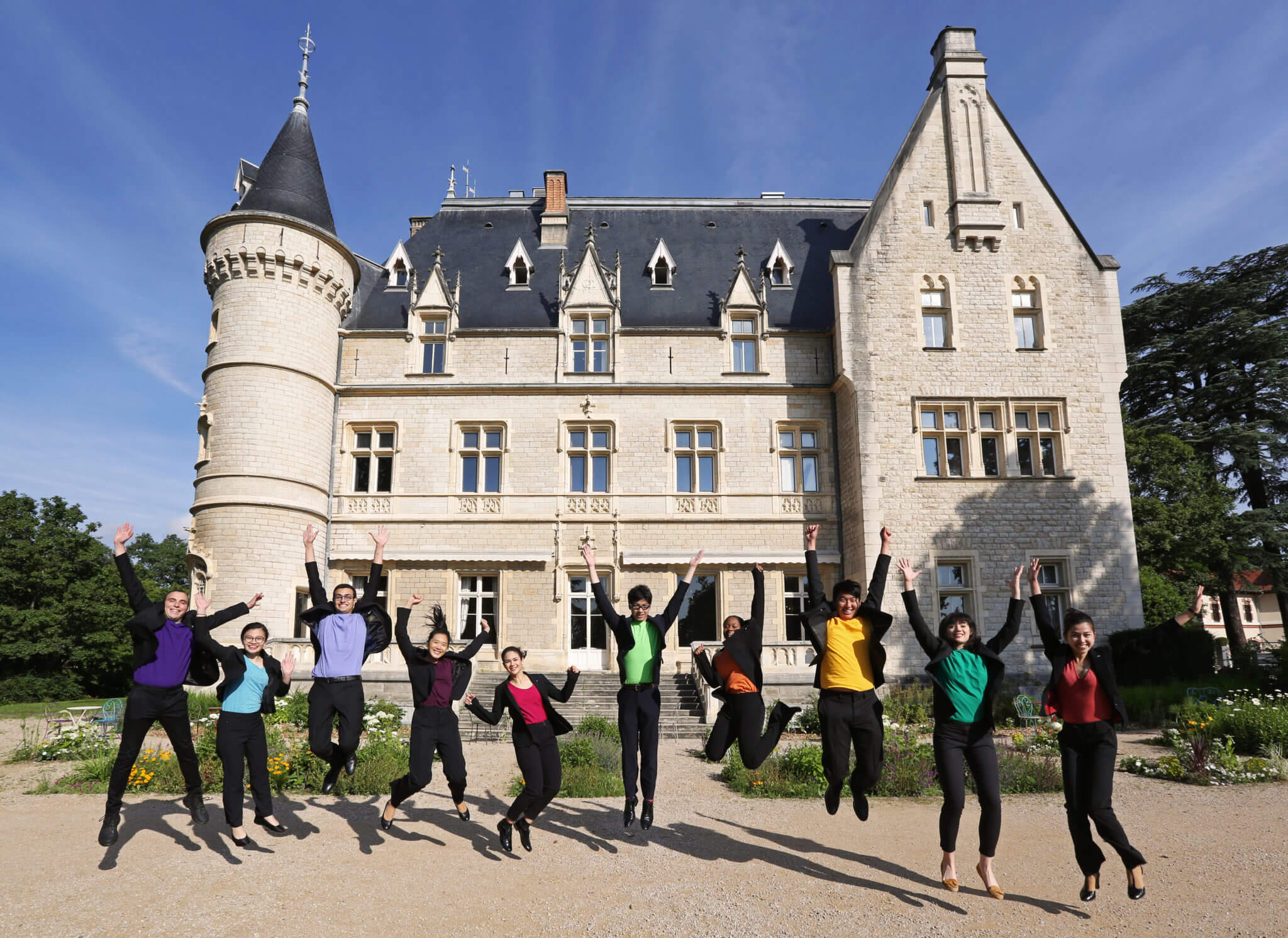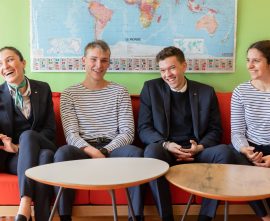Studying and living
on an eco-responsible
campus
Faire défiler la page Institut Paul Bocuse is committed to the fight against climate change and in favour of biodiversity. Several years ago, our school launched the “Engaged” project, involving the planned development of initiatives aimed at making the institution a model of environmental performance. These initiatives are carried out not only by the Institute’s members of staff but also by our students, who are destined to become key actors of the ecological transition.
What exactly does recycling involve at the Institute?
Our School has gradually introduced a protocol involving the sorting and collection of waste such as: paper, cardboard, plastic bottles, coffee grounds, oils, household waste and cigarettes.
In 2019, this enabled Institut Paul Bocuse to recycle:
– 10,310 kg of cardboard boxes, which made it possible to make 22,400 cardboard boxes.
– 1,530 kg of paper => 500 reams of paper
– 7 kg of plastic bottles => 183 1.5l bottles
– 10,000 kg of glass => 21,500 75cl bottles
– 5,100 kg of wood => 2,500 pallets
– 40 kg of cigarette butts: the acetate filter is ground, decontaminated and then transformed into plastic sheeting to make furniture and goodies, while the paper, ash and tobacco, already decontaminated by cigarette combustion, are ground and then added to compost.
A sustainable development committee has also been set up, made up of members from among the administrative teams to coordinate these CSR* initiatives on our Écully and Bellecour campuses.
*CSR: Corporate Social Responsibility refers to the consideration that companies give, on a voluntary and sometimes regulatory basis, to the environmental, social, economic and ethical issues at stake in their activities.
Our students are actors of the ecological transition
As part of the “Engaged” project, six students from the Bachelors programmes have created the EcoCampus student Society with the aim of contributing to raising general awareness of the challenges involved in protecting the environment. Thanks to their Instagram account @EcoCampus, and clear and relevant graphics, they highlight key statistics and ideas on ecology. Objective: to make our community even more respectful of our planet.
One example: EcoCampus has partnered with Ecosia, the famous German solidarity search engine, which donates 80% of its profits to a reforestation programme around the world. The association communicates continuously on @EcoCampus the number of trees planted following the use of the search engine.
The stage is given to Louise, a member of the EcoCampus association:
Our students are also in charge of our school’s aromatic garden. The aromatic herbs thus cultivated are used to enhance the dishes offered in our Michelin-starred Saisons restaurant.
Building the Institut Paul Bocuse of tomorrow
One year ago, we launched a major project to extend and modernise our facilities to offer our students a unique setting in which to live, work and study differently.
In addition to the pedagogical objectives, this project also symbolises our environmental and sustainable commitment to the school and its local ecosystem. In order to maintain a pleasant living environment on an increasingly “green” campus, multiple green spaces will be created, part of the roofs will be covered with vegetation, and the energy performance of the buildings will be enhanced.

